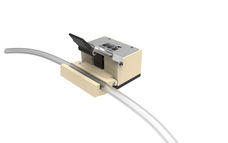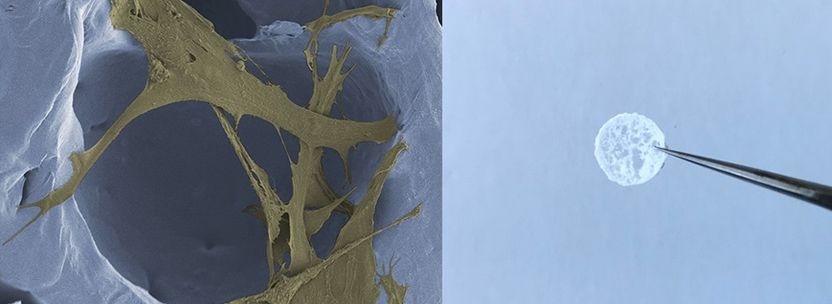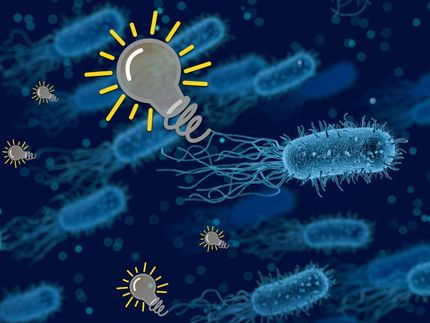Making more efficient fuel cells
bacteria that generate significant amounts of electricity could be used in microbial fuel cells to provide power in remote environments or to convert waste to electricity. Professor Derek Lovley from the University of Massachusetts, USA isolated bacteria with large numbers of tiny projections called pili which were more efficient at transferring electrons to generate power in fuel cells than bacteria with a smooth surface. The team's findings were reported at the Society for General Microbiology's meeting at Heriot-Watt University, Edinburgh, 7 September.
The researchers isolated a strain of Geobacter sulfurreducens which they called KN400 that grew prolifically on the graphite anodes of fuel cells. The bacteria formed a thick biofilm on the anode surface, which conducted electricity. The researchers found large quantities of pilin, a protein that makes the tiny fibres that conduct electricity through the sticky biofilm.
"The filaments form microscopic projections called pili that act as microbial nanowires," said Professor Lovley, "using this bacterial strain in a fuel cell to generate electricity would greatly increase the cell's power output."
The pili on the bacteria's surface seemed to be primarily for electrical conduction rather than to help them to attach to the anode; mutant forms without pili were still able to stay attached.
Microbial fuel cells can be used in monitoring devices in environments where it is difficult to replace batteries if they fail but to be successful they need to have an efficient and long-lasting source of power. Professor Lovley described how G. sulfurreducens strain KN400 might be used in sensors placed on the ocean floor to monitor migration of turtles.
Most read news
Organizations
Other news from the department science
These products might interest you

Hose pressure transducer by HiTec Zang
Contactless pressure measurement for sterile applications
Easy-to-install tubing pressure sensors for diameters from 4.8-19.1 mm

FireSting-PRO by PyroScience
New fiber optic measuring device: Precise measurements even in the smallest volumes
Measure pH, oxygen and temperature even under sterile conditions

Get the life science industry in your inbox
By submitting this form you agree that LUMITOS AG will send you the newsletter(s) selected above by email. Your data will not be passed on to third parties. Your data will be stored and processed in accordance with our data protection regulations. LUMITOS may contact you by email for the purpose of advertising or market and opinion surveys. You can revoke your consent at any time without giving reasons to LUMITOS AG, Ernst-Augustin-Str. 2, 12489 Berlin, Germany or by e-mail at revoke@lumitos.com with effect for the future. In addition, each email contains a link to unsubscribe from the corresponding newsletter.
Most read news
More news from our other portals
Last viewed contents
Agilent to Acquire BioTek

Exploiting deep learning to develop sustainable COVID-19 inhibitors - Collaboration Eisbach Bio GmbH & Technische Universität Kaiserslautern
Mohammed_Asha



















































